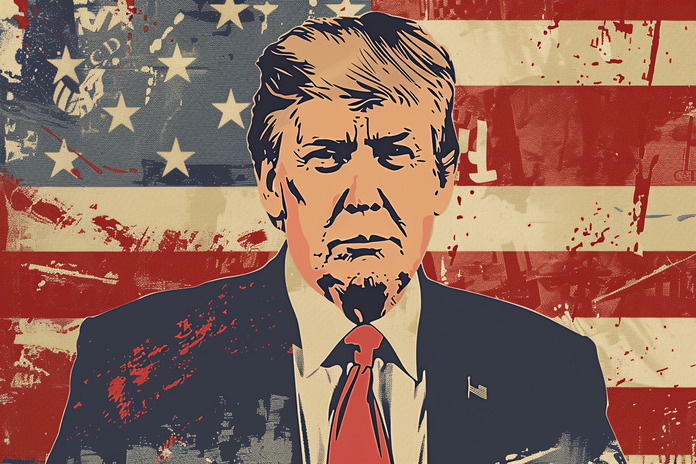The Trump family’s foray into cryptocurrency has officially hit Wall Street, with their holdings in World Liberty Financial (WLFI) now valued at roughly $5 billion. The launch of WLFI, a digital token created by the firm founded by former U.S. President Donald Trump and his sons, has ignited both investor excitement and political controversy.
Trump’s WLFI Fortune
According to financial disclosures, Donald Trump personally holds 15.75 billion WLFI tokens, worth an estimated $3.4 billion at current prices. Collectively, the Trump family controls nearly a quarter of WLFI’s 100 billion tokens, giving them a paper fortune of about $5 billion.
The WLFI token debuted on exchanges including Binance and Coinbase this week. Trading began at around $0.44 but quickly dropped by half to $0.22 as early buyers took profits. Despite the slump, the price remains higher than the initial purchase cost for many investors, leaving early participants in profit.
In July, WLFI investors voted to allow early backers—though not the Trump family—to sell up to 20% of their holdings.
Revenue Beyond the Tokens
Beyond their token holdings, Trump and his sons also earn a share of the revenue from WLFI sales, which has already surpassed $500 million, according to Reuters estimates.
That windfall was bolstered last month when World Liberty Financial struck a deal with a publicly traded company that raised $750 million to buy WLFI. The arrangement means WLFI effectively became both buyer and seller of its own token, raising fresh questions about transparency and governance.
Eric Trump celebrated the launch on social media, writing:
“We’re setting a new standard for financial freedom; built on trust, speed, and U.S. values. This is a huge moment for the future of money!”
Conflict of Interest Concerns
Democrats have raised alarm over the Trump family’s crypto involvement, arguing it creates conflicts of interest since Trump now oversees the very industry he is profiting from.
During the Biden administration, token offerings like WLFI faced heavy scrutiny, often treated as securities requiring strict disclosure and compliance. But the Trump administration has dramatically shifted course.
White House press secretary Karoline Leavitt dismissed concerns, stating:
“Neither the President nor his family have ever engaged, or will ever engage, in conflicts of interest. The media’s continued attempts to fabricate conflicts are irresponsible.”
Policy Shift Under Trump
Trump has positioned himself as a champion of cryptocurrency, vowing to make the U.S. the “crypto capital of the world.” His administration recently:
-
Disbanded the Department of Justice’s crypto crimes task force.
-
Rolled back Biden-era SEC guidance treating most tokens as securities.
-
Directed regulators to create a new crypto asset framework encouraging innovation.
SEC chair Paul Atkins declared in July:
“Despite what the SEC has said in the past, most crypto assets are not securities. We need a regulatory framework that allows these products to flourish.”
Bottom Line
The Trump family’s $5 billion crypto stake cements WLFI as one of the most high-profile political-financial experiments in history. But it also intensifies debates over regulatory capture, conflicts of interest, and the blurred line between governance and personal wealth.
As WLFI continues trading, its long-term success—or failure—will test both investor appetite and public trust in the Trump administration’s handling of digital assets.
Whether WLFI proves to be a groundbreaking innovation or a cautionary tale, its trajectory will have lasting implications. Investors, regulators, and voters alike will be watching closely. The intersection of politics, finance, and technology has rarely been so direct, making WLFI a pivotal experiment with global consequences.
As the debate intensifies, market participants must weigh both opportunity and risk. WLFI’s evolution could either inspire a wave of financial innovation or trigger deeper regulatory crackdowns. For now, it stands as a reminder that the future of money is inseparable from politics, policy, and public trust.
Featured Image: Freepik © hoaixuanboss

